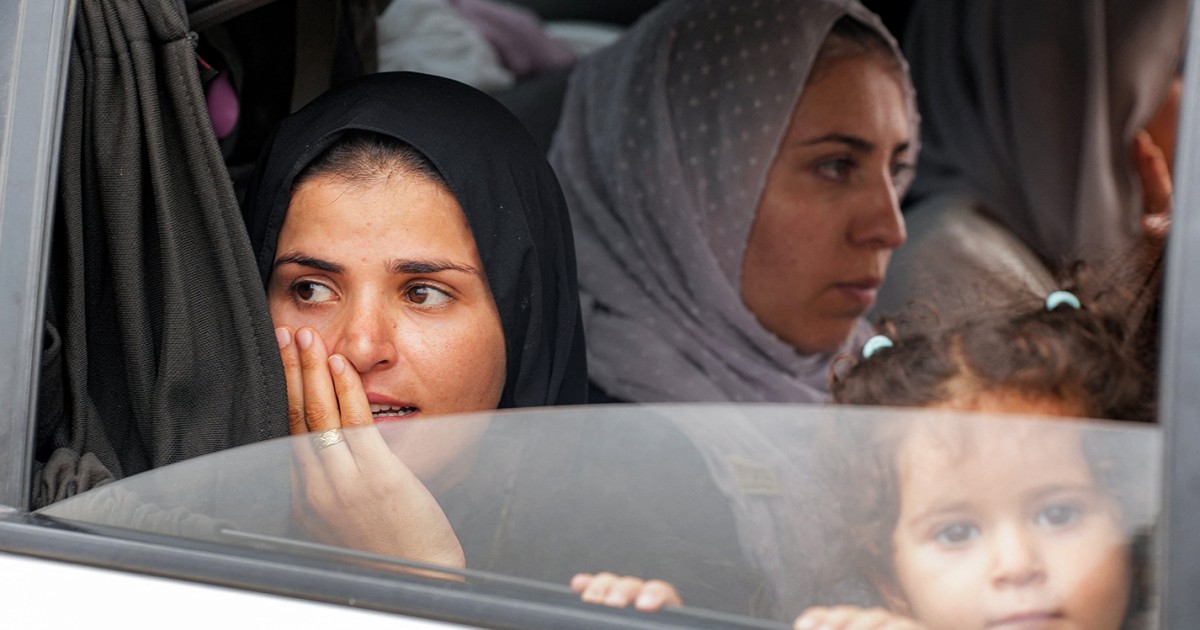Syrian authorities did not give further details about the evacuation and how it ties into the broader agreement, following failed talks for a hostage swap deal Saturday.
However, Britain-based war monitor the Syrian Observatory for Human Rights said that as part of the agreement, the Bedouin fighters would have to release Druze women they were holding captive, and leave the province.
The Bedouin fighters had withdrawn from Sweida city Sunday, and alongside other tribesman from other parts of the country stood on the outskirts while security forces cordoned off the area. An aid convoy of some 32 Red Crescent vehicles entered the city, though a government delegation with another aid convoy was turned away.
After talks for a hostage swap fell through late Sunday, the Observatory and activist groups in Sweida reported hearing what they said were Israeli airstrikes and helicopters over villages where some skirmishes took place between the Bedouins and Druze militias.
The Israeli military said it was “not aware” of any overnight strikes in Syria.
Syrian interim President Ahmad al-Sharaa has tried to appeal to the Druze community while slamming the factions loyal to spiritual leader Sheikh Hikmat al-Hijri who have been involved in the clashes. He promised to hold accountable perpetrators of targeted attacks and other violations.
The country’s Druze community largely celebrated the downfall of the Assad family that ended decades of tyrannical rule. While they had concerns about Al-Sharaa’s de facto Islamist rule, a large number wanted to approach matters diplomatically.
Al-Hijri and his supporters, though, have taken a more confrontational approach with Al-Sharaa, contrary to most other influential Druze figures. Critics also note al-Hijri’s previous allegiance to Assad.
However, the numerous cases of sectarian attacks, which included killing Druze civilians and desecrating photos of religious notables, have made the Druze more skeptical of Al-Sharaa and less optimistic of peaceful coexistence.
More than half of the roughly 1 million Druze worldwide live in Syria. Most of the other Druze live in Lebanon and Israel, including in the Golan Heights, which Israel captured from Syria in the 1967 Mideast War and annexed in 1981.
